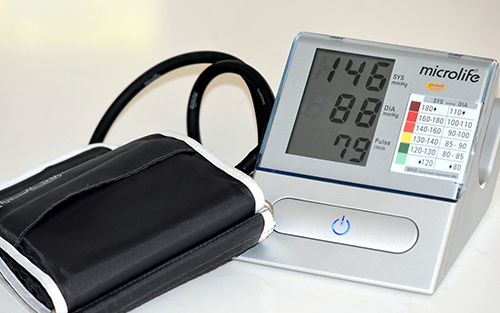Avoid rapid decline, chronic fatigue, medical emergencies, and premature mortality due to poor heart health. Knowing what to do or change in your lifestyle to strengthen your heart can significantly alter how you age and relate to other people.

yourfootpalace.com gathered information on how to improve your heart health while living a healthier, more active life.
About Your Heart
Your heart will beat approximately 2.5 billion times over your lifetime, pumping millions of gallons of blood to each part of your body. This steady flow carries oxygen, fuel, hormones, and essential cells throughout your body. It also contributes to the removal of metabolic waste products. When the heart fails or stops, some essential functions immediately fail.
Given the heart’s continuous workload, how it performs so well, for so long, and for so many people is utterly astonishing. That said, it can also fail, damaged by poor dietary habits, a lack of exercise, smoking, infection, etc.
Your heart is a muscle that responds to physical and mental stimuli. How it copes with these stimuli depends entirely on how healthy it is. Consider the following ways to significantly improve your heart’s health:
1. Increase Your Physical Activity
For some, this may be a significant challenge. If you haven’t been physically active in the past, you can get the ball rolling with the following and work your way up:
- Park your car farther away, resulting in a longer distance to walk to work or home
- On rainy days, try walking indoors at a gallery or mall (no excuses)
- Wake up early and exercise before your day starts
- Climb the stairs instead of riding an elevator
- Spend portions of your break-times walking
Note: Wearable digital fitness trackers can help you count your steps. Increase your daily steps by 500/week until reaching 10,000 steps per day. This level of daily steps can produce immediately noticeable health benefits.
2. Quit Smoking
Increase your lifespan. Do you really need another reason? Consider this:
Only 20 minutes after you stop smoking, your blood pressure and heart rate reduce. Then, in about 3 weeks, your circulation begins to improve. Your odds of heart disease are also immediately reduced. After a year without tobacco use, you’re 50% less likely to develop heart disease.
Note: For those who complain that their breathing worsened after quitting smoking, here’s a bit of vital knowledge: Smoking inflames the lining of your airways, but when you quit, you are no longer inhaling the toxic substances that irritated your airways, which allows the healing process to begin.
3. Consume Foods High in Fiber

Fiber is a carbohydrate that your body cannot break down. However, high-fiber foods may have other heart-health benefits, like reducing your blood pressure and inflammation. Fiber comes in insoluble and soluble varieties, and both are firmly linked to heart health:
Insoluble Fiber – This type of fiber is found in whole grains, wheat cereals, and vegetables like carrots, celery, and tomatoes.
Soluble Fiber – This fiber is found in barley, oatmeal, beans, nuts, and fruits like apples, berries, citrus fruits, and pears.
Note: A high-fiber diet can contribute to reducing the risk of heart disease and diabetes.
4. Adjust Your Sodium Intake
Excessive sodium intake, insufficient sodium intake, and high blood pressure are significant risk factors for developing or worsening existing heart failure. Balancing your salt intake may profoundly reduce these risks.
Consult your primary care physician or a nutritionist to figure out diet adjustments that can control and balance your sodium intake.
Note: For those considering a complete sodium removal from their diet: When sodium levels drop too low in the body, you can experience muscle cramps, nausea, vomiting, and vertigo-like dizziness. Eventually, this lack of salt may result in shock, coma, and death.
5. Control Your Weight
A normal and healthy Body Mass Index (BMI) measures between 20 and 25. Your risk of heart disease increases as your BMI increases. A BMI of 25 to 30 (considered overweight) has a higher risk, and a BMI of 30 to 35 (considered obese) is exponentially higher.
Note: Body mass index (BMI) is a measure of body fat based on height and weight that applies to adult men and women.
Tip: Consult your primary care physician, a nutritionist, and a certified personal trainer to get your BMI under control.
6. Manage Your Stress

Your body’s stress response might help you work harder and stay awake longer, but stress becomes a problem when stressors continue without relief or periods of relaxation. Some of the physical symptoms of stress can include:
- Aches and pains
- Chest pain
- Exhaustion or trouble sleeping
- Headaches, dizziness, or shaking
- High blood pressure
- Stomach or digestive problems
Ways to relieve stress and control anxiety include:
- Meditate
- Laugh more
- Take a spa day
- Get a foot massage
- Connect with others
- Get a couples massage
- Get active
- Get sufficient sleep
Prolonged periods of stress and anxiety have been linked to high blood pressure and heart disease.
7. Avoid Alcohol
Excessive alcohol consumption can lead to high blood pressure, heart failure, or stroke. Alcohol can also contribute to obesity and the exhausting list of health problems associated with it.
Moderate drinking can be defined as one drink per day for women and one or two for men. One drink constitutes 12 ounces of beer, 4 ounces of wine, or 1.5 ounces of 80-proof spirit.
Tip: Some people should avoid alcohol altogether if they have certain heart rhythm abnormalities or have heart failure.
8. Monitor Your Blood Pressure

In many cases, severe damage caused by high blood pressure (HBP or hypertension) occurs with time. Left undetected or uncontrolled, high blood pressure can lead to heart attack, stroke, heart failure, vision loss, kidney failure, sexual dysfunction, etc.
You can control high blood pressure by making simple lifestyle changes which include:
- Lose extra pounds and watch your BMI
- Start exercising regularly
- Eat a healthier diet
- Reduce sodium in your diet
- Limit the amount of alcohol you drink
- Quit smoking
- Reduce caffeine consumption
Note: Regular or normal blood pressure is widely considered to be 120 (systolic)/80 (diastolic). If your blood pressure is higher or lower than 120/80, you should consult with your primary care physician for advice.
Tip: Blood pressure monitors are commonly found in pharmacies everywhere. After purchasing one, take it to your doctor’s office to verify that it is working and calibrated properly.
9. Visit Your Primary Care Physician Regularly
Annual checkups and follow-ups after medical procedures are a vital component of your overall health. With heart conditions or illnesses that lead to heart conditions, your best deterrent is early detection and treatment.
BONUS TIP: Manage Your Diabetes
If you have diabetes, you are twice as likely to develop heart disease or suffer a stroke than someone without. The longer you have diabetes, the more likely you are to develop heart disease.
Consult a diabetes care and education specialist for personalized help avoiding health complications such as heart disease. Find out more about how diabetes education can help you take the best care of yourself by asking your doctor for a referral if you don’t already have a diabetes educator.
Heart Health
In this article, you discovered several ways to significantly improve your heart health and live a healthier, more active lifestyle.
Taking action early in life to improve your heart health can significantly increase your quality of life and help you avoid debilitating heart conditions.
Ignoring your heart health can lead to heart failure, heart attack, stroke, organ failure, and early mortality.
Sources:
heart.org
health.harvard.edu/topics/heart-health
health.gov/myhealthfinder/topics/health-conditions/heart-health/keep-your-heart-healthy
mayoclinic.org/healthy-lifestyle/nutrition-and-healthy-eating/in-depth/high-fiber-foods/art-20050948
nhlbi.nih.gov/health/educational/lose_wt/BMI/bmicalc.htm
cdc.gov/healthyweight/assessing/bmi/adult_bmi/index.html
hopkinsmedicine.org/health/wellness-and-prevention/alcohol-and-heart-health-separating-fact-from-fiction
(706) 521-5290
(678) 963-5958
To view the original version on Foot Palace, visit: https://yourfootpalace.com/9-ways-to-improve-your-heart-health//
No comments:
Post a Comment
Note: Only a member of this blog may post a comment.